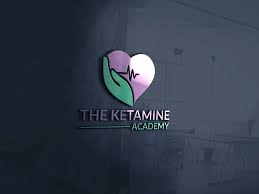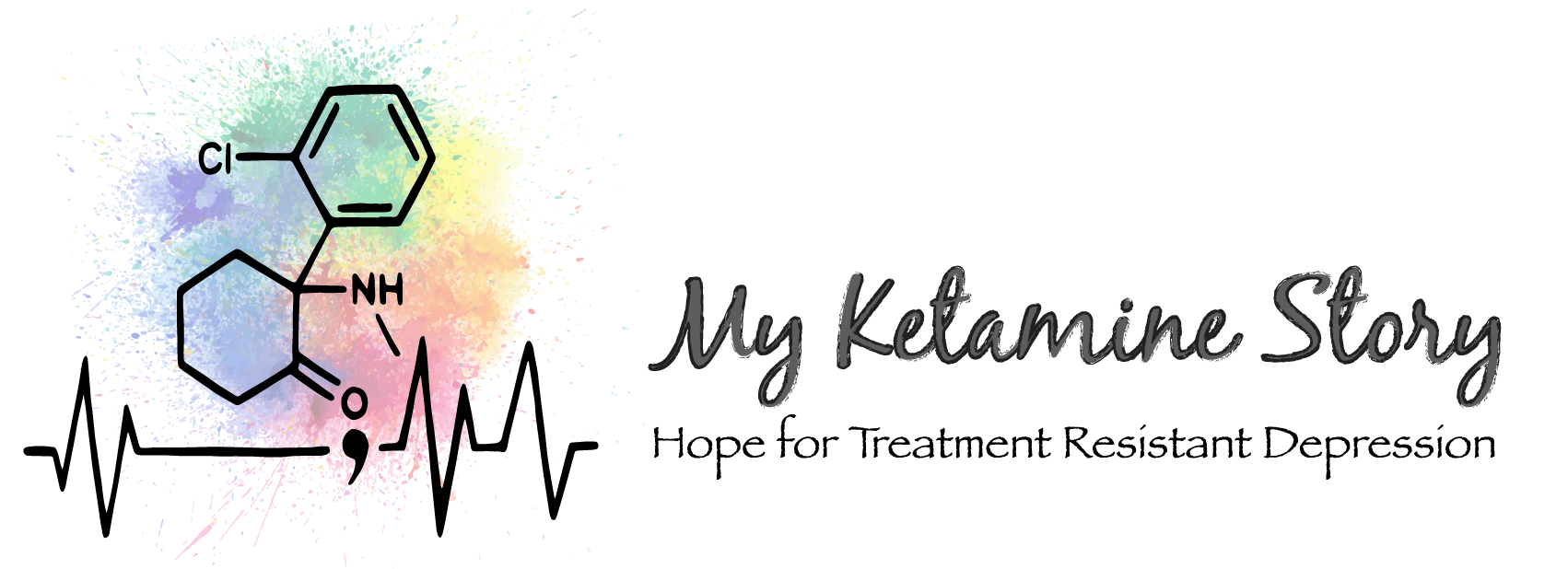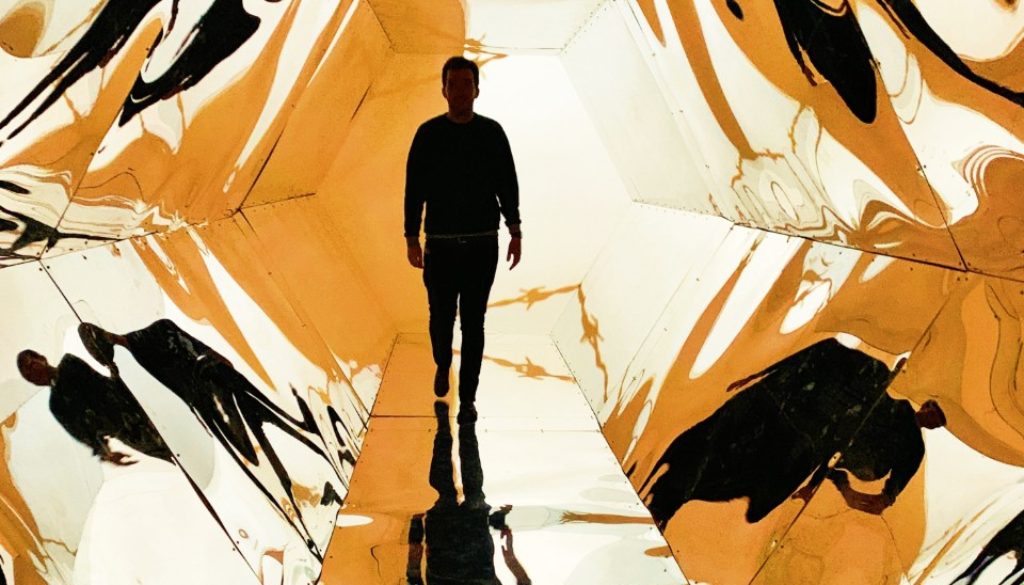Ketamine Treatment for Resistant Depression: Is There Only One Way To Experience Ketamine Therapy?
Hello again. It is Susan from myketaminestory.com.
I am a blogger that suffers with Treatment Resistant Depression (TRD), Anxiety, and Obsessive Compulsive Disorder (OCD). I was introduced to Ketamine for TRD in January 2015. I am forever grateful that I was. I spent the first two years focused on my recovery. I now have an excellent treatment plan in place, but that does not clear me from obstacles or pitfalls. I journal regularly. I educate and advocate for Ketamine Therapy to help treat chronic depression.
I have written for several Ketamine websites, entirely based on my experience with Ketamine therapy over the past four plus years in treatment. I am now adding the Ketamine Academy to my list of platforms I am grateful to use, in order to educate and advocate for this cutting edge therapy for treatment resistant depression.
In this blog, I really want to explore a couple different approaches to receiving Ketamine treatments. There are two methods in which I have gone about my Ketamine therapy; talk therapy and music therapy while meditating. I will be upfront. I really didn’t think that I would ever change the way in which I underwent my Ketamine therapy. I was gaining personal insights into my illness, how it was affecting me and how the drug, Ketamine, was working to elevate my symptoms. A perfect marriage. It was only recently that I began to re-evaluate whether I could stretch out my appointments if I tried something new. I started to think that maybe, just maybe, meditation could enhance my experience and well being.
In the beginning, and for many years, I would receive my Ketamine and analyze my body sensations, moods, and thoughts with my doctor. I discussed everything that was popping up in my mind. I wanted to understand myself and my illness better. I figured the best way to do that was to undergo psychotherapy while simultaneously obtaining my Ketamine. I discovered invaluable information with this process. I could not fathom changing this technique because I felt I was learning to see the differences between my depression and perceptions. I could witness the shift in my outlook on life as well as how I saw myself. My thought processes dramatically changed. I would begin in a very negative dialogue with my doctor: The world was shit, I was a tragic mistake, life was pointless and not worth living and so on. It became glaringly obvious to me just how much my depression tainted my cognition and everything else in my life. I discovered that as I was conversing with my doctor I would begin to doubt what I was saying as truth. I called bullshit on myself, and by doing so I could recognize how my depression was filtering my experiences. It was laughable to a point except for the fact that I thoroughly believed the lies my disease was spouting. I found I couldn’t examine my thoughts rationally when the depression resurfaced. It was the truth. When the Ketamine is effective for me, I can easily be my own cheerleader and question the logic of my thoughts and moods. I can concentrate. I quizzed myself on the legitimacies of the negative self ramblings. I didn’t automatically trust what I was feeding my soul. I could ask myself, “Is this an accurate portrayal of myself and the people in my life?” and more times than not I could see the mental illness filters in play.
When I first started getting Ketamine therapy I was very chatty. I wanted to discuss everything. What I was experiencing and the thoughts I was having. There were only a few sessions where I would sink so far into the drug that I was unable to properly communicate. My mind was so active that I couldn’t speak fast enough or make cohesive statements. In those incidents I would grow silent and just pay attention to my inner world. I found sharing my thoughts and insights profoundly helpful. I had so many epiphanies about myself and the way in which I function in the world and how the depression affects my ability to engage in life.
I have had emails asking repeatedly, do you really analyze your thoughts while getting Ketamine treatments? They couldn’t imagine how I was able to carry on conversations. I couldn’t imagine any other way. I gained so much knowledge during the years that I communicated with my doctor during my Ketamine sessions. It changed my inner world. It simplified the noise and ruminations. It made it easier to be aware of when the depression returned and when to reach out to my doctor for my maintenance dose. When my depression is present it feels impossible to combat the demons that are insisting that this mental state is permanent, and I should stop trying to fight it. Ketamine routinely gives me back my power and the belief that I can engage in life. Ketamine is hope for me that this depressed state is temporary. I approach my existence differently when the depression is locked in. I tend to retreat out of fear of misunderstanding my surroundings and processors. I safeguard myself. It is time for Ketamine again. I do find it frustrating when the filters are present and sometimes it is still very disruptive to me. I try not to be swallowed whole. I quickly, most of the time, reach out for help because I know I will spiral at lightning speed. I can’t afford to be consumed by the negativity that the depression bestows on me.
I have written several articles on the importance of self awareness. It was through multiple years of psychotherapy and Ketamine sessions that I have been blessed to recognize the insanity that is my mental illness. I no longer have the same default setting.
Ketamine and I have made new circuits. We have inputted new programming.
The switch between negative and positive self love is tricky. They both have my voice. They both seem incredibly real and all encompassing in the moment. I have been gifted through my work with my doctor and the use of Ketamine therapy to be able to distinguish between the two. I may not be able to change my processing of information when the depression is present, but I can recognize the difference: even if only briefly, it is long enough for me to call out for help. I can get trapped for days in this realm. I am known to be stubborn about admitting when the battle begins, as I tend to overanalyze and not concede to the powerlessness that I feel when the beast is controlling my inner dialogue.
It can wear different masks.
It tries to befriend me.
It wants me back.
The depression wants control.
It has been during my talks with my doctor while getting Ketamine that I was able to form a database of the various disguises that my depression wears in order to trick me. It took me years to dig around and create this new foundation. It is my opinion that I could not have accomplished any familiarity with my disease without investigating it with the assistance of my doctor and Ketamine.
I believe triggers and coping mechanisms that are put into place growing up and maturing will be different for each of us. We may have similarities but we are all individuals with our own histories. Our demons may all be called treatment resistant depression, but the costumes probably vary. The red flags that alert you that the depression has resurfaced may not appear to you as they do to me. I suggest that if you can find a doctor willing to administer Ketamine while also allowing psychotherapy to take place, I believe it could be as beneficial to you as it has been to me over the years. The cognitive connections have been informative and numerous. It has been indispensable in my recovery and healing. I have jumped countless hurdles and I can honestly say that every single one was worth it to have the life I am leading these days. I must keep that in perspective and I am not too humble to admit that I need reminders of how far I have come in a relatively short time. These crazy monsters, known as mental illnesses, have deep roots. Over decades, they have grown strong and it will take time to dig them all up and plant new seeds and spread fresh soil. I am living proof of that assessment.
Late last year, I was introduced to a cognitive behavioral modification specialist and have been working with her in conjunction with my Ketamine doctor. I find her imperative to my growth moving forward. She is also the reason why I felt I could try another tactic with my Ketamine appointments. I wanted to be open to investigating whether my Ketamine could be enhanced if I were to meditate during my treatments. I have been practicing passage meditation for over a year and a half now and love it. It has been immensely healing and has helped my OCD issues in ways I could never have imagined. It is because of my practice that I considered utilizing meditation during my Ketamine therapy. I spoke to my doctor and he was interested to discover my findings as well.
When I first started my meditation practice I was not an ideal student. It took me several attempts. I researched many different avenues of meditation. My husband has been an active meditator for years and has tried to convince me to give it a try in hopes of reducing my anxiety. The huge obstacle was my unwillingness to practice. My mind was a clutter of thoughts, racing thoughts. I couldn’t pretend to understand how I could silence them or train my mind by not thinking. I have spent my life thinking, thinking, thinking. I could not sit still. I could not see how meditation would be worthwhile for someone like me. I couldn’t picture sitting, breathing, and quieting the voices in my head. It brought me anxiety thinking about doing it. I thought I would be a failure at the practice, and my black and white thinking led me to not even entertain the possibility of it actually working or helping me in any way. I was wrong. I don’t like admitting that, but it is absolutely the truth. It has been instrumental in my recovery; especially with my anxiety and obsessive compulsive disorder. It is still remarkable to me to share how my opinions about meditation have completely changed over the past year.
When I first began my meditation practice I hopped around trying to find one I could stick with. If you google meditation you will discover how the subject is fodder for a procrastinator that doesn’t really believe in the benefits it could provide. It is overwhelming. I got distracted easily. It was during an inpatient visit that a counselor introduced me to Weightless by Marconi Union. I started looking forward to his meditation group and requesting that he use Weightless Part 1, which is eight minutes long, during his meditation class. I loved it. I also knew about passage meditation by Eknath Easwaran through the numerous attempts my husband made to engage me in discussions about the benefits of meditation on mental health.
I would bounce between the two approaches for a couple months. I found them both enjoyable. I know, shocking huh?
It was two worlds for me; an active world of reciting a meaningful passage and a passive world of listening to instrumental music as I sit for an allotted time period.
I did, however, settle on passage meditation because it gave my mind something to do and say that had meaning for me. I also found that when my thoughts became obsessive I could put my ruminations on halt by saying the prayer during the day when I felt overwhelmed or uncomfortable. It was in the act of repeating daily that I was able to increase the time I would practice to thirty minutes. I have been meditating for close to a year at 30 minute sessions. I try to do meditation every morning and evening. I am not always successful at my evening sessions as I have my gratitude routine at that time; where I list my blessing for the day in writing. I feel ending my day on the positive aspects of my life helps me sleep better and wake feeling refreshed and ready to start my day with my meditation practice.
The reason I mention these two types of meditation is mainly due to how both have aided me and my mental health. The intentional pulling the mind back from ruminating obsessively with the use of a heartfelt message has allowed me to train myself to deal with anxiety/panic attacks. I feel in control of my mind for the first time in my life. I am the driver and not the passenger.
So, when I thought about changing my Ketamine experience, I automatically considered the two methods that have been successful for me. I figured that passage meditation might be too frustrating or complicated to do while under the influence of Ketamine, so that left “Weightless” by Marconi Union. Neuroscience has already proven that listening to this ambience type music can reduce anxiety by 65% so why not give it a try while getting my Ketamine treatments?
The last several months have been spent getting Ketamine while listening to “Weightless” with me eyes closed. During my last appointment my doctor asked me how the new method of Ketamine was going for me. I was short on words; which is not typical for me.
I don’t have an opinion on whether listening to relaxing music is better than engaging in intellectual conversation during Ketamine. I do find that I quickly go into a meditative state during my appointments, and that has been challenging for my normal practice of meditation. I try not to judge my meditations, but it is not an easy task.
I will say this, I feel like meditating with music during Ketamine therapy is not hurting me. I hope over time that I will find that it enhances the ability of Ketamine to heal my brain in ways I am not even aware of today. I enjoy the relaxation I feel during my Ketamine appointments. I look forward to that deep trance – and that can’t be damaging to my psyche, in my opinion. It gives my brain a break and possibly allows the Ketamine to heal what is broken and heal those dead cells. It is only a different route of experiencing the administration a drug that is saving my life over and over again.
I believe healing is taking place whether I talk or listen. I miss the insights and profound connections I made during my Ketamine appointments, but I also love the time in which I relax and imagine the Ketamine growing new cells and pathways. I remind myself that just because I don’t see or feel progress happening doesn’t necessarily mean that nothing is transpiring within. I think this approach to receiving my Ketamine therapy gives me opportunities to allow the drug to do its job without my incessant need for feedback or insights. A form of letting go and letting the Ketamine do what it needs to do to keep the depression at bay. I do know that I walk out of my appointments lighter and ready to engage in life. I guess I can work with my therapist on the deep seated issues that baffle me and stop forcing the Ketamine to do the job for me. It might be possible that during the Ketamine maintenance appointments in a deep relaxed state makes the regeneration of healthy cells easier because I am not analyzing my experiences but allowing the perfect conditions for recovery.
I will probably revisit this topic in the future when I have more information. It has only been a few months after all. I would be interested in hearing the experiences of other Ketamine patients, so feel free to comment or email me.
If you are interested in educating yourself further on Ketamine therapy for Treatment Resistant Depression, check out the four-part series I wrote answering questions about Ketamine use, based on my experience with Ketamine therapy over the past four plus years.
My first blog, Ketamine: Addressing Questions & Concerns focused on my early experience with Ketamine Infusions.
In part two of the series, Addressing Questions & Concerns About Ketamine Therapy for Treatment Resistant Depression I addressed questions and concerns about Intramuscular Ketamine versus Ketamine Infusion therapy.
In my third blog, Frequently Asked Questions: Redefining Depression With The Assistance Of Ketamine Therapy, I was a bit more random. I had emails with several questions and themes, and I addressed as many inquiries as I could.
In my final question and answer dialogue, Pondering Concerns & Questions: The Benefits Of Ketamine For Treatment Resistant Depression, I discussed research, clinical studies, and the need for changes to occur within our insurance companies and federal government so that maybe one day Ketamine will not be so difficult to afford or obtain from any qualified professional.
I hope these personal blogs from a patient that suffered for over four decades with treatment resistant depression will be helpful in convincing you why Ketamine could help you or someone you love.
Also, if you would like to become a provider of Ketamine Therapy try enrolling in The Ketamine Academy‘s online Ketamine Infusion Therapy training course; it would be an excellent decision and could be extremely helpful for others like me. The Ketamine Academy online program will surely benefit you and the mental health community.
I have been generating a Ketamine Providers and Locations list and I update it regularly. Please visit my personal website for the full provider list. This list may help you find a clinic in your city or state. I update the provider list regularly. I highly recommend individuals contact me if you administer Ketamine or if you are aware of a Ketamine provider not in my directory; I will happily add new Ketamine clinics.
In conclusion, If you know of anyone suffering with treatment resistant depression, like I do, let them know that Ketamine therapy may be an option worth looking into. It has been and continues to offer me relief from my symptoms.
Originally posted on The Ketamine Academy website.






August 2, 2020 @ 11:17 am
Its like you read my mind! You appear to know a lot about this, like you wrote the
book in it or something. I think that you could do with a
few pics to drive the message home a bit, but instead of that, this is fantastic blog.
A great read. I will definitely be back.
My blog post :: CBD for Sale
April 13, 2023 @ 1:11 pm
bookmarked!!, I lolve your website!